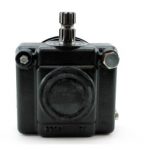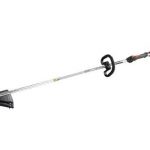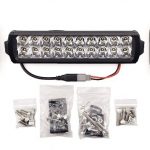A mower that backfires is irritating, but thankfully backfiring is not a danger to your engine and lawn mower. While it’s not dangerous, it can be a symptom of other problems, and should be addressed. So what is a backfire, what causes it, and how can you stop your lawn mower engine from backfiring?
What is a backfire?
A backfire is a popping noise caused by gasoline igniting outside of the combustion chamber of the engine.
What causes a backfire?
A backfire is often caused during rapid deceleration, as the engine tries to bring its timing in line with the lowered throttle. This can often lead to an excess of air in the mix, creating a lean blend. The lean blend is then forced into the exhaust system due to incomplete combustion because of the mistiming, where it spontaneously combusts with the popping sound that is heard. This sounds like a lengthy process, but in fact occurs in a split second due to the precision timing of the engine.
How can I avoid a backfire or stop them from happening?
There are a number of things you may do while operating your mower that can cause a backfire, and there are way to avoid them.
The primary cause of a backfire is decelerating too quickly. The simple fix for this is just to lower the engine speed a bit more gradually. If you have a throttle that you use to reduce speed, gradually let it up instead of letting it rebound quickly.
The second most likely cause is a carburetor that is not adjusted correctly. The carburetor itself could be producing a lean mix, causing backfire during normal operation as well as during deceleration. This can be fixed by adjusting the carburetor for a richer mixture – consult your owners’ manual or have a professional adjust it.
Sometimes the gasoline itself is the problem. A gasoline with a higher blend of alcohol in it – and we’ve discussed the problems with alcohol and ethanol in the past – can make your mower more likely to backfire due to skewing the mix. Mowers are engineered to handle certain blends of gasoline, using the wrong blend can unbalance the system. To fix his, simply change your blend – try to find a no-alcohol blend, or at least a lower alcohol blend if a no-alcohol blend is not available.
Another cause of backfires can be the engine running at a hotter temperature than usual, which is simple to fix by increasing airflow over the engine to cool it down, or stopping the engine and let it rest. For a long-term fix, consider modification of the engine housing for less air restriction across the engine.
Finally, sometimes backfires simply happen due to the construction of the muffler, and the sensitivity of internal passages. In these cases, short of replacing the muffler, there is no fix.
Backfires are not dangerous to people or to the engine, despite the name. But if they’re annoying you while you’re going about your business, use our guide to find and fix the problem.





